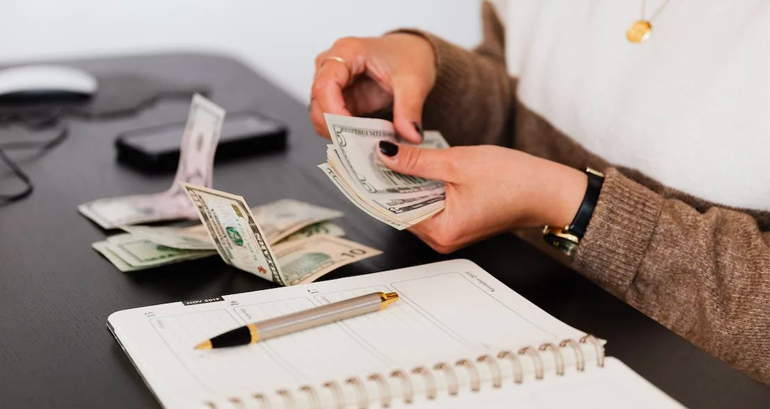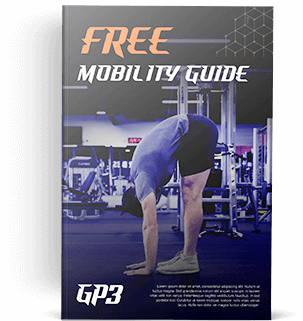Key Points:
1. Most of us struggle in some way with our fitnesses, finances, or both.
2. Societal forces and early childhood experiences play a large role in this.
3. Education and compassionate self-examination are two of our best tools for overcoming these struggles.
Estimated reading time: 4-8 minutes
Listen to this article on Spotify!
Last week’s piece covered some of the many parallels between fitness and finance. We discussed topics such as how counting calories is like dealing with an invisible credit card ledger and how much easier it is for the superrich to stay super rich and the superfit to stay super fit. We also talked about the worrying state of the average American’s fitness and finances, while touching upon some of the root causes.
I hinted that education and compassionate self-examination were our best tools for improving our outcomes in both of these arenas, and today we’ll spend most of our time on the latter. At the end of the piece, I’ll also provide some of my favorite educational resources. In addition to this blog, of course!
Why do we struggle with overspending and overeating?
As a society, our default state seems to be regularly eating at least slightly more calories than our bodies burn and spending at least slightly more money than we make.
But why is that?
There are multiple reasons, and we’re going to unpack them one by one.
Dopamine and Control
First, and most obviously, spending money and eating can both make us feel good. Temporarily, anyway. Eating something we enjoy stimulates all of our senses, and spending money allows us to acquire something new. Exciting! Both trigger a rush of the neurotransmitter dopamine, which our brains find rewarding and pleasurable, so we’re incentivized to continue. Therefore, in a moment of stress, boredom, or anxiety, eating something tasty or buying something we want both provide a convenient escape from uncomfortable feelings we’d rather not address head-on.
There isn’t anything inherently wrong with doing this. It’s pretty innocuous when done on occasion. Problems simply arise when these two strategies become our only options for dealing with discomfort, and such coping mechanisms can easily plunge us into debt or obesity if we overuse them.
Additionally, because we need to eat to survive and because most of us live in a society where we need to spend money to function, fitness and finance offer two convenient opportunities to exercise a sense of autonomy. If we feel that we lack control in our lives, we’re more prone to restrictive practices or binging when it comes to our money and our food.
Simple enough, right?
But, challenges arise because we’re never taught to recognize ourselves using food or spending money as coping mechanisms, nor are we given alternate strategies for dealing with uncomfortable feelings. If hypothetical future schools taught mediation in addition to fitness and finance, perhaps we could solve this problem. But for now, it’s on us.
It all goes back to childhood
Have you ever wondered why finance and fitness are so intertwined with feelings of guilt and shame? Well, financial issues contribute massively to divorce and marital strife, and children aren’t oblivious to this. Parents may complain or fight about money in front of their children, explain that they can’t afford certain activities or items the child wants, or inadvertently make their kids feel bad about how much it costs to go on a field trip or join an athletic team. I’ll cut parents some slack here because often this isn’t intentional in the slightest, but it does have consequences.
Alternatively, money may be used by parents as a tool of control, or finances may be a strictly taboo topic, in a “We Don’t Talk About Bruno” type of way. Regardless, many children internalize the belief that financial matters are ones to be avoided and feared, or even believe money (or a lack thereof) to be the cause of familial unhappiness. Plus, the lack of a formal financial education in most schools and the predatory practices associated with loaning tens of thousands of dollars to naive teenagers for a college education compound this problem. So, it’s no wonder many people take a “head in the sand” approach to their own financial situation.
On the nutrition front, someone who grows up in a family that places a large emphasis on appearance can easily slip into disordered eating behaviors. Plus, until we’re old enough to drive, we’re essentially locked in to the eating habits of our parents. If they eat in a way that generally isn’t conducive to overall health, we’re basically stuck. Throw in the reality that many families are either over-scheduled with activities or food insecure, and it’s obvious that most of us don’t grow up in environments conducive to practicing slow, mindful eating. This means we don’t develop an intuitive sense of when our bodies are hungry or satiated.
Society is also to blame (of course, right?)
The way the modern Western world (my favorite villain) treats health and financial issues compounds the guilt, shame, and anxiety many of us feel. Despite the woeful lack of education around these two key facets of life, we treat difficulties with them as character flaws or as moral failures. Entire books have been written on the detrimental effects of believing that we live in a meritocracy, Spoiler alert: we don’t. But, we collectively work very hard to reinforce this myth.
Therefore, it’s easier to assume someone who is deep in debt or morbidly obese must be somehow deficient rather than simply having failed to overcome unfair odds. Contemplating this would force us to question whether we, ourselves, enjoyed any unearned advantages simply as an accident of our birth. Most of us don’t like doing that. I hypothesize that realizing we “got lucky” often leads to discomfort rather than gratitude because deep down, we’re all dealing with inadequacy issues of some kind. But I’ll dive deeper into that topic in a future post.
Let’s get back to the point, shall we?
Instead of feeling the discomfort that can arise when confronted with unearned privilege and deciding what to do about it, we often engage in the moral equivalent of eating a bag of chips in one sitting. “I can’t believe they got themselves into that situation. How could they not have planned better? Good thing I’m not like that.” This serves to make us temporarily feel better while not actually solving any problems. It also provides another habit we can catch while engaging in…
Compassionate Self-Examination
As a first step, we can simply practice noticing ourselves mindlessly reaching for the cookies or the credit card. Initially, we may not notice we’ve done so until after the fact. However, by shortening the duration between doing and noticing, we’re making progress. Eventually, we’ll reach a point where we “catch ourselves in the act.” As a reminder, this is not about guilt. It’s simply about non-judgmentally noticing our behavior.
Once we notice what we’re doing, we can check in with our bodies and ask, “What am I experiencing right now?” Is there anything here that I’m trying to get rid of?” In Dr. Jill Bolte Taylor’s fantastic memoir and TED Talk, My Stroke of Insight, she explains that the physiological component of any emotion lasts only 90 seconds in the body. These sensations will still feel incredibly uncomfortable, and without a doubt we can unintentionally prolong them. Just as assuredly, however, they will pass. This means that as simple as it may sound, noticing is even more than half the battle. Sitting with the associated discomfort comes next. This is harder, but yet more valuable.
Now, it’s not uncommon to feel that your skills in one area far surpass your skills in the other. At the risk of making you pass out from the profundity of what I’m about to say, we all have different strengths and weaknesses. As such, I think the best I can do in this case is provide you with a list of resources that have helped me. I hope they’ll do the same for you. As my aptly-named exercise science teacher, Professor True, once said, “You’re a lifelong experiment of one.” So, get to work! Your fitness and financial education paired with compassionate self-examination isn’t going to happen by itself 🙂
Here are some of my favorite resources for you to check out:
Investing:
Fitness and Nutrition:
- Jordan Syatt
- Layne Norton
- Megan Callway
- Molly Galbraithe
- Dr. Stephan Guyenet: The Hungry Brain
- Dr. Brad Schoenfeld
Self-Examination
Before you go, I’d love to hear from you! Which of these parallels between fitness and finance had you come across before? Which of the two do you feel provides a bigger challenge in your life, and what have you tried to do about it? Reply to this email and let me know!

